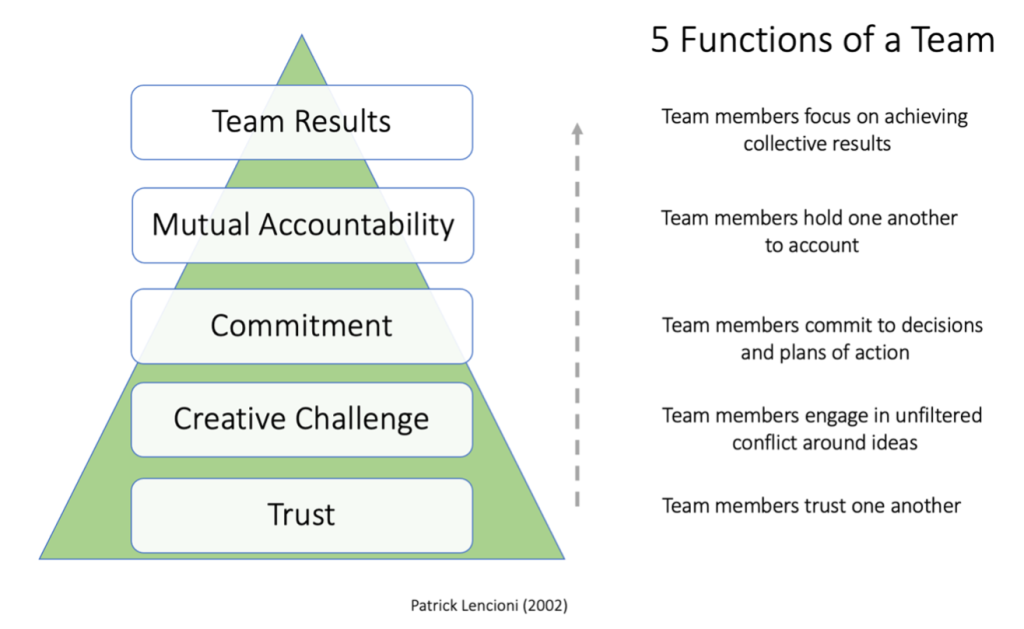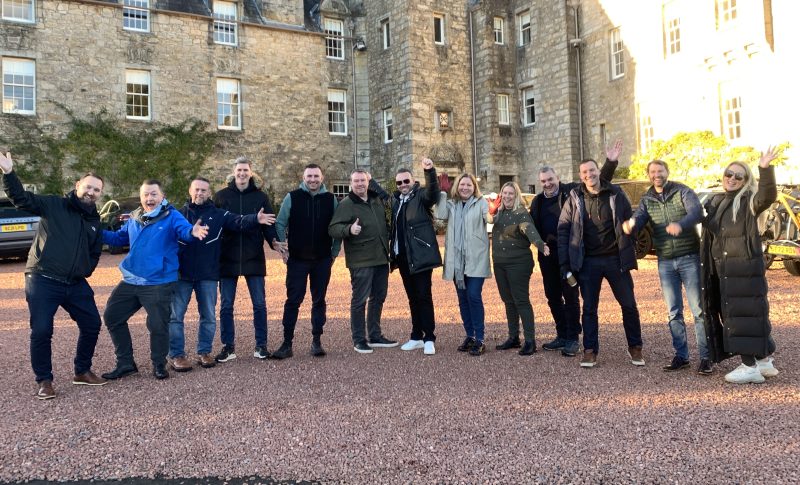Making teams work. The surprising power of disclosure in fostering connection and trust.
How can you get teams to work together better? I am going to share a simple but powerful exercise to accelerate trust and ultimately performance.
It’s a truism to say that an organisation’s people are its greatest asset. But it’s the way those individual people work together in teams which really matters.
Dysfunctional teams are one of the most common blockers to progress in business. Whether it’s dealing with change or performing well during business as usual, collaboration between team members is vital.
But collaboration is easier said than done. How do you create the conditions for productive teamwork in your organisation? How do you get people to work well together?
High performing teams trust each other
You are probably aware of Lencioni’s 5 Dysfunctions of a Team model (Lencioni, 2002). Trust is the key foundation of effective teamwork. Trust enables creative challenge which in turn promotes commitment and mutual accountability which underpin achievement of collective results.
Trust is key
But developing trust within a team isn’t always easy. Trust requires a number of elements to be in place, not least some measure of self-awareness, an awareness of who our colleagues are, and the courage to speak our hearts and minds. And yet not many of us really know one another, or ourselves. The conditions for trust are not really there.
How does this happen? Sometimes it’s because we have forgotten our own back-stories. In an effort to fit into the workplace we have disappeared ourselves and grown increasingly less deeply self-aware. And yet, we are more surface’ly self-conscious! And because no-one has thought to ask us who we are, to ask us what our stories are, we don’t really think about these and how these shape us.
The workplace can be an accidentally uncaring and courage-shrinking place, and trust can’t get a foothold.
What if we could turn this around? What would a safer, more aware, more trusting environment enable? Bigger, richer conversations around more exciting, tougher topics? More commitment and momentum around a common purpose?
These are some of the questions we ask, and help clients uncover the answers to, on our leadership walkshops, retreats, treks, and missions.
The 4-3-2-1 Exercise
Here’s a disclosure framework we use to explore self-awareness and build trust. Taken from the Fresh Air Leadership ToolKit, it can quickly shift the dial on levels of trust and awareness. Make time and space for the whole team to do this together, and you’ll find that powerful conversations unfold, and collaboration becomes easier.
4 Things
Describe 4 things that shaped you, at least one per decade. It’s really important that you don’t skip ages 0- 9, and 10 – 19 as these are important formative periods.
3 Passions
Tell the group 3 things you are really passionate about. Think really carefully before you reach for standard phrases like “family”. Exactly what is it about family (or whatever else you choose) that brings you alive?
2 Ways to get your attention
Give 2 ways to get your attention. We all have communication preferences, and you may have been turning one another off by being unaware of this!
1 Secret
Reveal 1 thing that no-one could probably guess about you.
Be ready
Give everyone time to speak and be ready for all sorts of surprises.
There may be tears as well as moments of joy and inspiration, so be prepared for some difficult stories in the mix. Unless specifically asked don’t dive in and “rescue” upset story tellers. Give them space and simply be present for them.
Ultimately team members who can disclose and share at this personal level will be less predisposed to play politics and waste colleagues’ time. There will be a new baseline of trust and respect in play that will make for a more caring, creative, and collaborative workplace.
What now?
If you are interested in finding out more about how we accelerate the performance of teams get in touch with me directly at dave@freshairleadership.com




